South Bend Bat Removal
Welcome to South Bend Bat Removal! We are Indiana bat removal specialists. It is important to know that bats are protected by Indiana law, and are beneficial animals to have in the environment. We do not kill any bats during our bat removal process. Never hire a pest control company or anyone who says they are a South Bend bat exterminator. For correct and effective bat removal, you want a company that specializes in humane bat colony extraction. Our process is not only the only legal method in Indiana, but it is the most effective. We have a 100% success rate in our bat control process. We perform our industry-best 32-point inspection of your house or building, and seal shut all bat entry holes down to 1/4 inch as part of the removal process, during which we remove the colony via special one-way exclusion devices specific to your architecture. Once all bats are safely out, we permanenetly bat-proof the structure. We also provide guano (bat droppings) removal and decon. Click on our South Bend Bat Control Prices page to find out more about our prices for bat control work. We work 24/7/365, and would love to talk to you about your bat problem. Call us any time at 574-367-7073 to discuss it, discuss our pricing, and if you wish, set up an appointment at your convenience, often same-day.
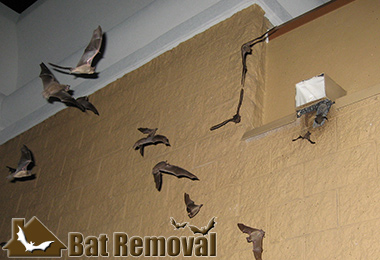
South Bend Building and Attic Inspections
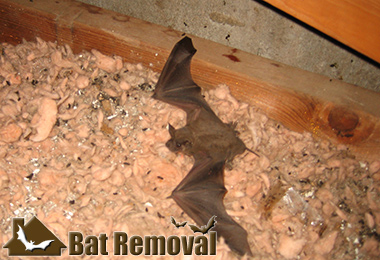
No-kill Indiana Bat Extraction
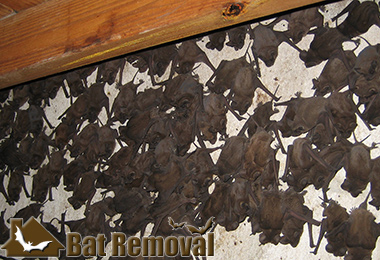
Guano Cleanouts - Serving all of Indiana
Call 24/7 to discuss your bat problem.
Same-day or next-day appointments.
32-point inspection of your property.
Written estimates for bat removal project.
Fully state licensed and insured.
Residential and commercial service
100% no-kill South Bend bat extraction
Complete bat-proofing of your building
Compliance with all Indiana, federal laws
Guano removal and attic decontamination
Our Service Range - 574-367-7073
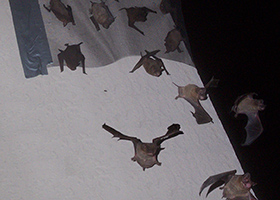
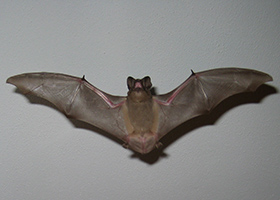
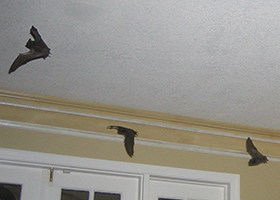
5 Foods that Belong in the Natural Diet of the Bat
With around 1,200 species of bats that are known to man, it is not surprising if their natural diet will also vary. Most of them are incredible hunters that can discern even the faintest noise that the insects will create. With their incredible speed, it will be difficult for them to watch while they are actively hunting their food.
Foods That Bat Love to Eat
Most of the bats will love the taste of insects; around 70 percent of them will actively hunt for insects. However, they will not only be restricted on insects. Some of them can also eat blood, fruits, nectar, etc.
1. Insects
The microbats' diet is composed of insects. They will be using their echolocation when hunting flying or crawling insects. They will usually be eating harmful insects especially those insects that destroy the crops. Therefore, farmers will be attracting them in their agricultural lands. They can capture the insects using their tail membrane or wings and will immediately transfer it to their mouth while they are flying. The little Brown Bat can eat at least 600 mosquitoes per nights.
2. Frugivores
Other bats will be eating fruits and seeds. They will be enjoying the taste of the pollen and they also play a key role in pollinating the plants. These types of bats are known as frugivores. Some of the fruits that they will usually eat include bananas, dates, mangoes, and figs. Some of them can also drink the sweet water produced by the hummingbird.
3. Small Animals
Other bats will be preying on small amphibians, birds, lizards, and rodents. There are also species of bats that will eat fish. They are excellent hunters that will use their echolocation when locating their prey. They have good eyesight but most of them will not use this when they are foraging. They have a different structure of head compared to the frugivores.
4. Blood
Despite how bats have been depicted in the stories as blood-sucking creatures, only 3 of them will drink blood. The most popular would probably be the vampire bat. In order to draw the blood out of their victim, they will create a small incision on the body of their target. Their usual target would be horses, sheep, and cow. The vampire bat will need only 2 tsp of blood per day. Their saliva also contains anesthesia, ensuring that their target will not feel their bite.
5. Nectar
Nectar feeders are known for their narrow and long muzzles that allow them to reach deep into the flowers. They are species of fruit bats that are classified as nectarivores. Their orbit also provides them with an excellent vision that resembles the power of the binoculars. These bats can travel for miles just to retrieve the nectar.
Bats are amazing and fascinating creatures that are known for their elegance. They are known as an important part of our ecosystem. Due to the misconception on their feeding habit and urbanization, some species are now in danger of being extinct.

